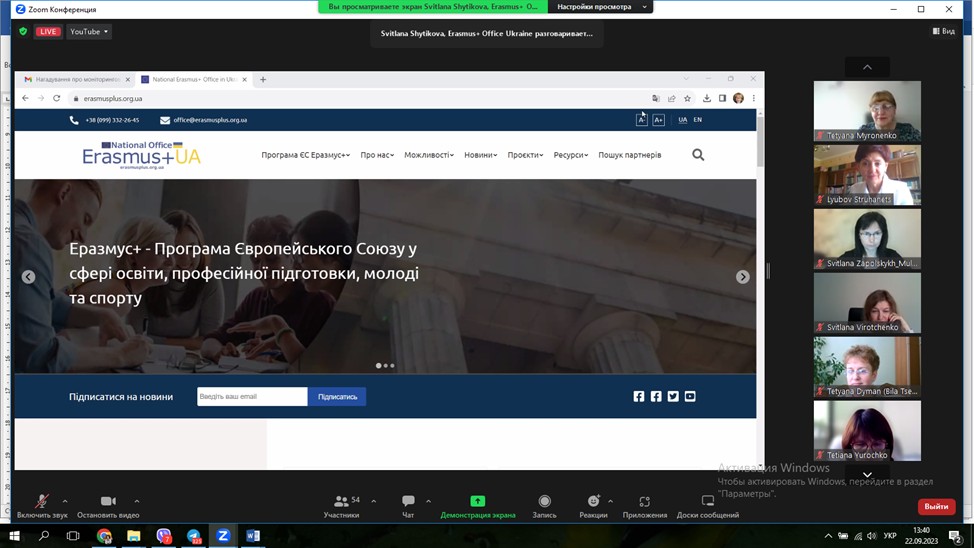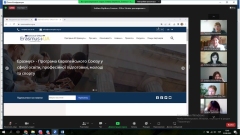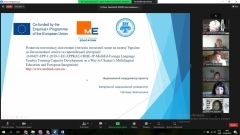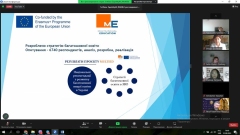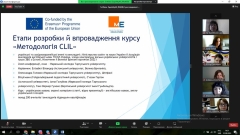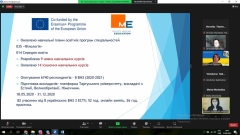September 22, 2023. Erasmus Office of Ukraine conducted a monitoring cluster event under the EU Erasmus+ Program with the aim of spreading leading experience and monitoring the results of projects in the direction of Higher education potential development, ensuring synergy between projects working in a certain cluster, promoting the thematic priorities of the EU Erasmus+ Program, in particular quality, digitalization, inclusion and environmentalization of higher education.
Svitlana Shitikova, coordinator of the National Erasmus+ office in Ukraine, and representatives of the Ministry of Education and Science of Ukraine addressed the participants of the event with a welcome speech, who emphasized the importance of the participation of Ukrainian universities in KA2 Erasmus projects and noted the special qualities of Ukrainian project participants, their focus on quality achievement results, despite the difficult conditions of martial law in the country.
The webinar "Quality assurance in the context of European integration: recognition, digitalization, inclusion" covered projects by cluster of modernization of educational programs, one of which is the MultiEd project, "Development of the potential of foreign language teacher training on Ukraine's path to multilingual education and European integration" (610427- EPP-1-2019-1-EE-EPPKA2-CBHE-JP-MultiEd “Foreign Language Teacher Training Capacity Development as a Way to Ukraine's Multilingual Education and European Integration” which is coming to an end this year.
The results of the project were presented by the national coordinator Svitlana Zapolsky, associate professor of the Zaporizhia National University. She listed the achievements of the project, which include the updating of educational programs for foreign language teachers 014.02 Secondary Education in 8 Ukrainian universities, the joint development of 9 new courses and the updating of at least 14 courses in each university, 2 developed manuals, an autonomous electronic course, multilingual education strategies and national recommendations on multilingualism in higher education of Ukraine.
The coordinator emphasized the close cooperation between Ukrainian and European colleagues during the implementation of the project and thanked the European colleagues for their professional support and provided expertise.
All the results of the project implementation will have a significant impact at the national and institutional levels in accordance with the strategic development of higher education in Ukraine in the context of European integration.

